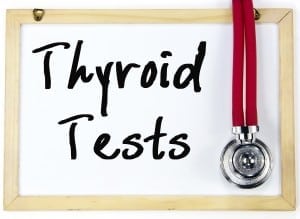
For years our society has been grain-obsessed and centered on the notion that bread is the “staff of life.” However, today’s bread and grains are not the same as what our ancestors consumed – wheat has been genetically modified to include gluten and researchers say this has affected all the grains we consume.
Even with research and information provided to the public today, grains continue to be the foundation of many peoples diet because this way of eating is how we were raised . . . cereal for breakfast, a sandwich for lunch, and a grain of some sort as a side dish at dinner. Modern commercial farming using conventional methods is a multibillion-dollar industry deeply rooted in politics and policy. Have you heard the story of how the original food pyramid came about?
President LBJ did not gain support of the dairy industry during his presidency however, he received much support from the grain industry. In turn, the popular food pyramid put forward by U.S. government awarded grains preferrential placement in the pyramid as a foundational component for human consumption and human health . . . this mis-guided education directed to the masses has resulted in significant health consequences – blood sugar issues, obesity, autoimmune conditions and more.
It’s time to embrace the reality that grains are not and should not be a significant part of the Standard American Diet (S.A.D), and yes it is very sad indeed! You may be thinking that eliminating grains seems like an impossible feat, ridiculous fad or band-wagon, or just too extreme. Given the ways grains wreak havoc on not only human health but also that of pets, and farm animals, we need to find alternatives to grains but still be satisfied with what we eat because food should also be enjoyable.
Gluten is an inflammatory protein found in grains like wheat, oats, rye, barley, and spelt. The vast research that surfaced approximately four years ago with new highly sensitive tests allowed doctors to check their patients lab markers to more accurately diagnose food sensitivies and allergies, immune system responses, and Celiac disease. Some of the blood tests for Celiac disease are more sensitive and accurate than a tissue biopsy (which often produces a lot of false-negative results).
One does not necessarily have to subjectively “feel” symptoms to experience problems with gluten. How gluten wreaks havoc on the intestinal tract is deceptive and may take many years to discover what damage has occurred – usually one doesn’t know they have issues with gluten until for example they are diagnosed with an autoimmune disorder later in life.
What is also interesting is that gluten has been accused of “molecular mimickry.” In other words, to the immune system in the small intestine, gluten looks exactly like other protein molecules. This is problematic in autoimmune disorders because as the immune system begins to attack gluten and protein molecules mistaken for gluten as a foreign invader, in its confused state of chaos it also begins to attack the host’s tissues (meaning YOU). One study linked gluten to 55 different diseases SOURCE and another PubMed study put forward that gluten excites opiate receptors in the gut associating it with addiction issues. This is certainly not the bread of Biblical times.
Since corn and rice are not directly gluten-contaminated, many are choosing them as alternatives. Scientist’s argue however, these are just as unhealthy due to contamination issues as previously stated.
Phytic Acid or phytates are a group of anti-nutrients that bind to minerals in the body rendering them useless and not usable. Osteoporosis and mineral deficiencies are exacerbated by phytates because they bind to minerals like calcium. Whatever level of nutrients found in grains are diminished by phytates which means the nutrients are not available to be used by your body.
Lectins are a defense mechanism in grains to make them resistant to disease or invaders. How this equates for humans is that a) they are another type of inflammatory protein, b) they are not digestible, and c) leptin can bind to insulin receptors causing insulin resistance. Like gluten, lectin proteins are associated with intestinal impermeability, or “leaky gut syndrome” meaning they embed the mucosal lining of the intestinal tract and eventually cause tears or punch holes along the way allowing for undigested foods to spill into the bloodstream where they don’t belong. This is the perfect storm or breeding ground for chronic disease to develop.
Essential Fatty Acids: Grains tend to be high in polyunsaturated omega-6 fats. Unlike omega-3 fats, this form is ultra inflammatory. It has its purpose however in processed foods the ratio is unbalanced. But it doesn’t stop there… omega-6 inflammatory fats are also found in oils like vegetable, soybean (Crisco), canola, and corn oils.
The grain industry has been known to launch campaigns to inform the public that grains are necessary and vital to human health citing fiber and nutrients as a rationale; however, humans can consume significant fiber and nutrient content from eating fruits and vegetables that don’t compromise intestinal or immune system health. It is sad to see uninformed reporters targeted by the grain industry sing praises for why we should be consuming lots of grains.
Don’t fall for it – especially if you have Hashimoto’s, celiac or any other autoimmune condition.
Read Next: Leaky Gut Syndrome





